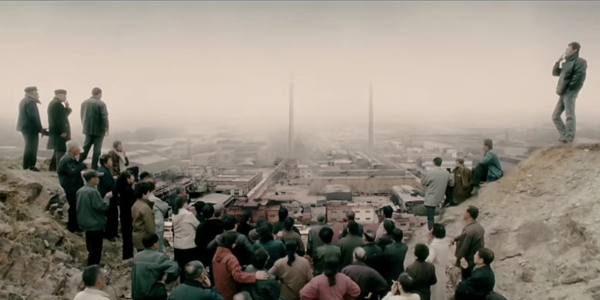Environmental Objects and (Post)Industrial Sentiments
Teaching East Asia
In his critically acclaimed film The Piano in a Factory (2010), an elegy for a bygone working-class community and a revisit to the (post)industrial reality in Northeast China, Zhang Meng presents a stunning eulogy of two gigantic smokestacks (now dysfunctional), regarding them as coordinates for residential locations and work units, testimonies of growing up memories, and tokens of forgotten friendship at a time of tumultuous transition. By contrast, in her phenomenal yet “ephemeral” documentary Under the Dome (2015), a belated ecocritical epiphany and allergy, Chai Jing compellingly brings to the limelight towering factory smokestacks, which were once regarded as an overwhelming sign and symbol of industrial development and socialist modernization, now are understood as a source of air pollution and environmental health risks. The distinctive smokestack stories and sentiments provide an illuminating entry point into the changing material trajectories and social life, the awakening environmental consciousness, and the structural transformation of private feelings and public emotions against the great backdrop of industrial, de-industrial, and post-industrial times and related ecological impacts. This lecture aims at examining the genealogy of smokestack objects and associated affective attachments evidenced in diversified genres, works and movements from modernist observations to environmentalist interpretations, from literary imagination to cinematic representations, and from (post)socialist manifestations to ecocritical reflections.
Image: from Zhang Meng's film Piano in a Factory
Sponsored by East Asian Languages and Cultures

